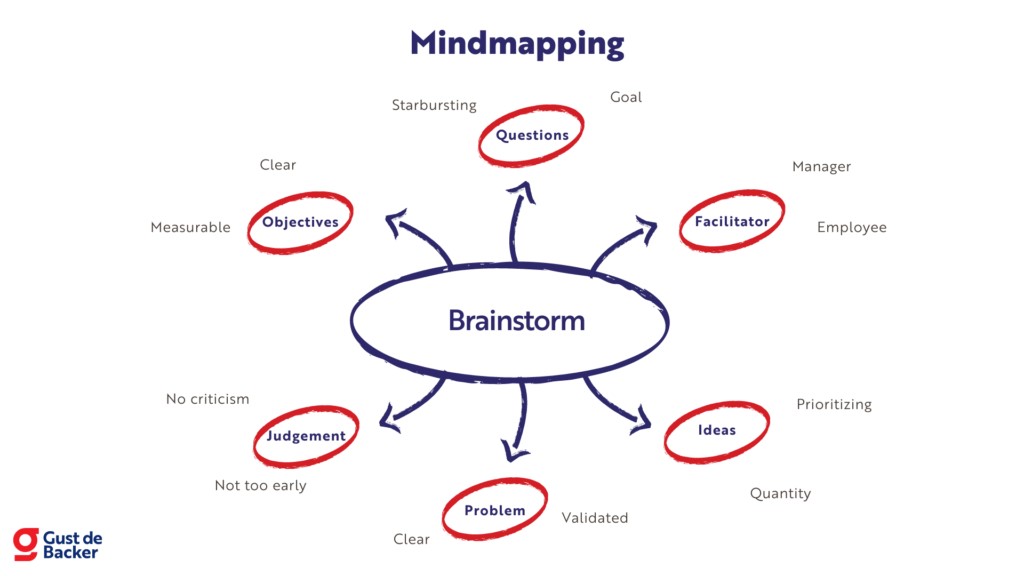
Generating Research Topic Ideas With Brainstorming Techniques
Are you at the beginning of your research project, ready to go into uncharted scholarly waters but struggling with the first, often difficult, step of selecting a topic? Do not be alarmed; you are not the only one stuck in your head.
Finding research subject ideas through brainstorming techniques is both an art and a science that calls for a combination of strategic thinking, organized techniques, and inventiveness. Read on to pique your interest, sharpen your concentration, and transform the unclear into the vivid.
The Landscape Of Brainstorming Techniques
One of the best ways to generate ideas while postponing judgment is to brainstorm. It is especially useful when brainstorming in groups since your combined efforts can generate more ideas more quickly than when you brainstorm alone. An idea from one person may spark the imagination and thinking of others, creating a domino effect that might not have happened in a solo brainstorming session.
Do you follow us on Social Media? If not, then you’re missing out on a lot of informative content. We regularly share upgraded educational content, tips, feedback, and more. Check us out by clicking the profiles here - Facebook / Twitter / LinkedIn / Pinterest / Instagram / YouTube
Few things to remember about brainstorming:
- It Is The Foundation Of Creative Thought
It's important to comprehend the basics of brainstorming before you can become an expert at it. Brainstorming is an organized procedure intended to promote creativity in regulated environments; it is not merely a means of tossing ideas around at random. It examines the psychological foundations of brainstorming's effectiveness as a research technique, including theories from cognitive psychology regarding how our ability to link unrelated ideas results in creative solutions.
- Get Acquainted With The Traditional Methods
Numerous scholars and researchers have benefited from these techniques, which range from the tried-and-true mind mapping technique to the unconventional reverse thinking method, in coming up with ideas for new and interesting study subjects.
- Use The Modern Digital Tools
The way we conduct academic research has changed as a result of technology, and this also applies to brainstorming. These technologies, which range from software that uses artificial intelligence to recommend study subjects to online collaboration platforms that enable remote brainstorming sessions, make it simpler than ever to come up with and arrange ideas.
How To Apply Brainstorming Techniques In Research

Here are a few ways to apply brainstorming techniques to research attention-grabbing topics:
- Brainstorm Research Questions
The next stage after gathering a plethora of ideas is to hone them into researchable questions. This crucial shift entails assessing each idea's viability, uniqueness, and applicability focusing on a smaller number of subjects, and developing questions that are manageable, relevant to your profession, and fascinating.
- Case Studies
There's nothing that demonstrates the effectiveness of brainstorming like real-world instances. Case studies will provide thought-provoking case stories from a range of academic disciplines where the use of brainstorming methodologies has resulted in novel research questions. These anecdotes show the approaches' versatility across fields in addition to highlighting their efficacy.
How To Use Collaborative Techniques for Brainstorming?
Use these techniques to enhance your brainstorming sessions:
- Group Dynamics
Depending on how they are run, group brainstorming sessions may either provide a wealth of different ideas or turn into a chaotic diversion. The facilitating of inclusive dialogues, avoiding groupthink, and techniques to support each participant's unique contribution are among the topics covered. Discover how to use the different experiences and viewpoints of each participant to create inspirational and effective meetings.
- Hybrid Brainstorming
Combining conventional and digital brainstorming strategies can produce better results in today's mixed academic contexts. how the depth and scope of ideas created may be increased by combining mind mapping software with in-person brainstorming sessions. We'll give real-world examples of how combining these approaches might make it easier to investigate possible study subjects in greater detail.
Challenges Faced During Brainstorming Sessions
Brainstorming sessions often come with their own set of challenges, here is how to overcome them:
- Deal With Mental Blocks
Even the most seasoned academics occasionally experience creative slumps or mental obstacles. Changing your surroundings or connecting with other sources for inspiration may be quite effective ways to fight them. revitalize your creative processes and keep up the flow of your idea generation to make sure you keep coming up with fresh and timely subjects.
- Ensure Relevance And Novelty
Making sure the ideas you come up with for a brainstorming session are both novel and pertinent to the conversations going on in your industry is one of the biggest hurdles. Make sure you are using conferences, journals, and databases to determine how current and relevant your ideas are. Learn about how to validate the originality of your research topics and make sure they fit in with current scholarly discussions.
Conduct Successful Brainstorming Sessions
The vital initial stage in your research process is brainstorming, which has the power to turn the abstract into the tangible. However, before you start your research process ensure that you have completed a Professional Doctorate in Education Administration & Leadership to understand the requirements. Recall that the secret to productive brainstorming is to permit oneself to freely explore ideas while utilizing the instruments and techniques that can organize this process.
We believe education should be accessible for everyone. That’s why we don’t charge for our blogs. Find the right course that will help you in your career with us, contact us at +66-21055721. You can mail us at act@asiancollegeofteachers.com

